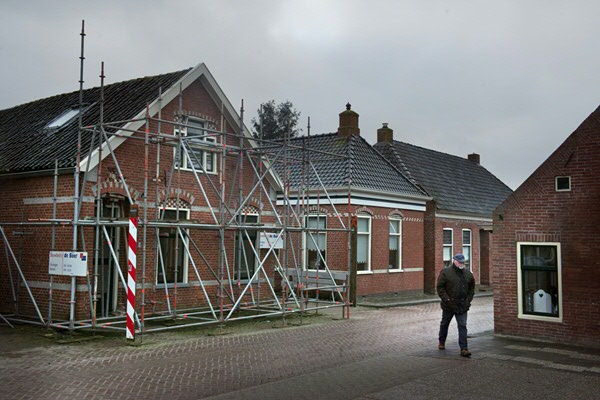Little trust in agencies responsible for settling Groningen gas extraction issues
The responsibilities for dealing with the consequences of gas extraction in Groningen are divided among many different institutions. These are interdependent and together, they make up a complex institutional system. Marielle Bovenhoff has conducted a study on the influence of the institutional context on residents’ trust in these institutions and their affiliated professionals. Between the system and the citizens, there appears to be an attitude of distrust, despite the level of interpersonal trust between residents and professionals.
For the study, Bovenhoff interviewed over 60 residents and professionals from different institutions. When viewed as individuals, resident guides and other professionals are seen as well-intentioned, hard-working, and trustworthy people. But as representatives of (large) institutions, their trustworthiness is at stake, as institutional performance persistently falls short. In this context, many professionals indicate that they have insufficient discretionary power.

More so than interpersonal trust, an entirely different form of trust is at stake here: trust in the system itself (‘system trust of confidence’). According to many respondents, trust in the system is low because the interests of the major institutions that have shaped this system are not aligned with those of residents and of the region. Moreover, positions of power and responsibilities within this system lack transparency, both for residents and for professionals.
In addition, the institutional system is perceived to be based on a distrust of citizens in general, resulting in lengthy procedures for accountability, monitoring, and supervision. While this may be understandable for financial and legal reasons, it acts as a barrier to restoring trust in the system, regardless of the level of interpersonal trust between residents and professionals.
More news
-
03 February 2026
‘Such willpower’
-
20 January 2026
Alcohol, texting, and e-bikes
-
13 January 2026
Lonneke Lenferink joins The Young Academy
